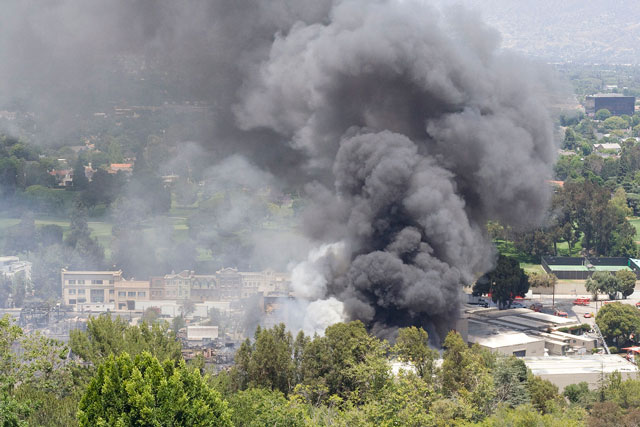
Universal Music Group has been meticulously combing their archives recently, attempting to investigate what may have been lost in the 2008 fire that destroyed a storage facility on the backlot of NBCUniversal’s Hollywood studio. On Wednesday (17th), chief archivist Pat Kraus shared an internal memo to the company’s staff updating them on the status of said investigation, giving them what seems to be good news on their part.
According to the memo, which was obtained and published in full by Variety, Kraus and his team have:
“Been working around the clock, fielding requests from approximately 275 artists and representatives. To date we’ve reviewed 26,663 individual assets covering 30 artists.”
The memo claims of that number, the amount of loss was relatively low:
“We believe we’ve identified 424 that could be missing or lost due to the fire, with audio assets accounting for 349 of them. Our data suggests that 22 of those could be ‘original masters’ which are associated with 5 artists. For each of those lost masters, we have located high-quality alternate sources in the form of safety copies or duplicate masters.”
Kraus says that the investigation is still ongoing and that:
“We complete new work and we fill in gaps of work we’ve already done, these tallies will continue to evolve by the hour.”
Krauss also answers a number of frequently asked questions in the memo. This includes why Universal Music Group doesn’t just publish a complete list of items lost in the fire (claiming that “it affected both inventoried assets and those that were not inventoried,” as well as some of the “older inventoried assets [not having] easy-to-identify complete and accurate metadata associated with them.”) and why it takes so long to figure out what might be lost (saying that it can take days or weeks to comb through one artist’s assets because there is more than just audio, their work might be scattered in multiple archives both UMG’s and elsewhere). The memo also answers whether all the artists mentioned in the New York Times Magazine article lost their recordings, whether they will be making the status of each artist’s personal findings public, if it is still possible to reissue an album without the master tapes and where masters are currently being stored.
Universal Music Group has been denying the severity of the damage done in the fire since it happened in 2008. Initially, the company claimed that only assets from the 1940s and 50s were destroyed. The company still refutes many of the claims made in the New York Times Magazine article, calling the 500,000 recordings estimate “greatly exaggerated.” However, in a previous memo to the company’s employees, CEO Lucian Grainge made it a point to be more transparent with artists, saying:
“Even though that event happened more than a decade ago, and while I’ve been somewhat relieved by early reports from our team that many of the assertions and subsequent speculation are not accurate, one thing is clear: the loss of even a single piece of archived material is heartbreaking.”
The new memo comes just as reports surface that Universal Music Group is seeking to get the class action lawsuit filed against them in late June dismissed. That suit, filed by Hole, Soundgarden, Steve Earle, Tom Petty’s ex-wife and the estate of Tupac Shakur, claims that Universal Music Group did not do enough to prevent the fire and protect the recordings, as well as neglected to tell the artists how bad the damage was, asking for half of the $150 million settlement the company received for the damages in 2013 and half of any additional losses not documented. On Wednesday the company filed a motion to dismiss the case on the grounds that the master tapes were their property and that the artists suing did not have the right to the any of the insurance or settlement proceeds from 2013. They also claim that the statute of limitations on filing such a lawsuit has passed.
In a statement to Rolling Stone, Howard King, one of the lawyers representing the artists in the class action suit, compared Universal Music Group’s motion to something Donald Trump said during his presidential campaign, namely that:
“He could shoot someone on 5th Avenue with impunity. And they think they can set fire to those master recordings on 5th Avenue with impunity.”
Of King’s clients, only Hole has been contacted by Universal Music Group about the status of their masters, which the company said were unharmed. However, when asked to provide proof of that claim, the label declined to do so.
With approximately only 11% of the artists who’s recordings may have been lost accounted for, it could be a while before we know the true extent of what was lost in the 2008 fire.











